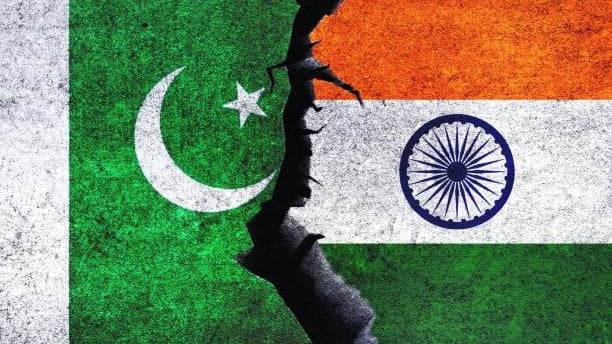Understanding the recent India-Pakistan conflict: A deeper analysis
Indo-Pak conflicts are more than mere geo-political rifts. In this article we try to look at economic interests of global powers who may be playing a role.
5/16/20253 min read


Beyond the Headlines: Unpacking the Complexities of India-Pakistan Tensions and Global Stakes
The recent flare-ups between India and Pakistan have once again gripped headlines, often presented as a straightforward narrative of attack and retaliation. But as anyone who’s paid attention to South Asian geopolitics knows, the reality is far more intricate. What we're witnessing isn't just about immediate triggers; it's a deeply rooted manifestation of historical grievances, economic ambitions, and the calculated responses of global powers.
The Elephant in the Room: India's Ascent and Western Perceptions
For decades, developed economies, particularly in the West, have maintained a somewhat ambiguous stance towards India's burgeoning global influence. India's unwavering commitment to self-reliance, encapsulated by ambitious initiatives like 'Make in India,' has undoubtedly resonated within its borders. Yet, this push for autonomy seems to have generated a subtle unease among some Western powers. Why? Because they hold significant vested interests in maintaining a delicate balance of power in Asia.
This underlying tension often surfaces in the narratives these nations promote. By simplifying the complex dynamics of the India-Pakistan conflict, they risk not only misrepresenting the situation but also inadvertently fueling further tensions. It's crucial to look beyond the simplistic headlines and understand the deeper geopolitical currents at play.
The Economic Undercurrents of Conflict
From an economist's vantage point, the periodic spikes in tension between India and Pakistan aren't entirely surprising. Economic imperatives frequently underpin geopolitical strategies. India's drive for autonomy in areas like trade and defense has, at times, met with resistance from both regional and global players.
There's a subtle but powerful perception that India's robust economic growth could, in the long run, challenge established global power structures. In this light, conflicts, even seemingly isolated skirmishes, can be seen as potential catalysts for a redefined global order. This is why it's imperative to analyze these events not just through a military lens, but through the crucial prism of their economic ramifications.
The Unspoken "Benefits" (and Major Risks) for Developed Nations
Let's consider a controversial thought experiment: what if India's economy were to falter due to prolonged instability?
Reduced Competition: A less competitive India could lead to a significant reduction in competitive pressure on industries in developed countries, particularly in sectors like manufacturing, IT services, and pharmaceuticals. This might allow them to capture a larger market share or experience less pricing pressure from Indian counterparts.
Geopolitical Vacuum and New Opportunities: India is a vital player in the "Global South," and its stability is crucial for regional and global balance. An unstable India, however, might create a vacuum that other powers, like China, could seek to fill. While this presents immense risks, it could also – theoretically – open up new strategic opportunities for developed countries to counter emerging threats or expand their own spheres of influence.
Accelerated Supply Chain Diversification: The "China-plus-one" strategy, where companies are actively seeking to reduce their reliance on China, has seen India emerge as a promising alternative. But if India becomes unstable, this diversification could shift dramatically to other stable Southeast Asian nations (like Vietnam, Indonesia), parts of Latin America, or even spark a push for reshoring manufacturing back to developed countries.
However, it's absolutely crucial to underscore that these potential "benefits" are mere ripples in a tsunami of negative consequences. A truly unstable India, a nation of over 1.4 billion people with a burgeoning economy, would trigger a catastrophic domino effect:
Global Economic Downturn: As a major global economy and consumer market, instability in India would send shockwaves across the world, potentially leading to a severe global recession.
Humanitarian Crisis: The human cost would be immense, potentially leading to a humanitarian crisis of unprecedented scale, demanding vast international aid and resources.
Heightened Global Security Risks: Given India's nuclear capabilities and its complex neighborhood, instability could escalate regional security concerns to a dangerous global level.
The Bottom Line: Stability is Key
While it's important to acknowledge the intricate interplay of interests that shape global responses to conflicts, it's equally vital to recognize the bigger picture. The prosperity and stability of a nation like India are not just beneficial for its own citizens; they are fundamentally in the long-term strategic and economic interest of every developed nation.
In an increasingly interconnected world, genuine global stability is the ultimate goal. Anything that undermines it, even if seemingly offering short-term tactical advantages, ultimately creates more problems than it solves.
